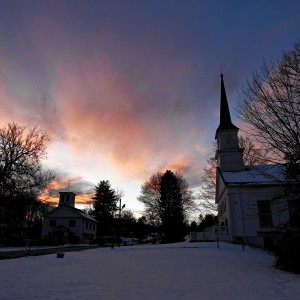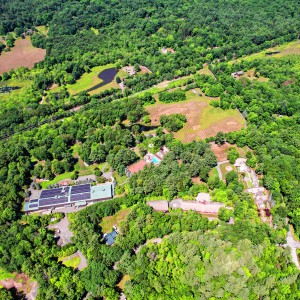Northfield energy bylaws rejected by Attorney General’s Office
| Published: 11-27-2024 4:46 PM |
NORTHFIELD — Citing a lack of “articulated public health, safety or welfare justification sufficient to justify the prohibitions,” the Attorney General’s Office has rejected the vast majority of the language within two bylaws that were approved at the spring Annual Town Meeting that would have imposed a moratorium on solar projects.
Both approved by an overwhelming majority of voters at the May 6 Annual Town Meeting, Article 26 imposed a moratorium on the use of land for battery energy storage systems as a principal use through August 2025, while Article 27 imposed a moratorium on the issuance of special permits or building permits for the construction of large-scale industrial ground-mounted solar photovoltaic systems, including dual-use agrivoltaics.
In a 10-page letter written by Assistant Attorney General Nicole Caprioli, the AG’s office found the two bylaws did not provide “articulated evidence of an important municipal interest, grounding in protecting the public health, safety or welfare, that is sufficient to outweigh the public need for solar energy systems.” That articulated evidence is required due to Massachusetts General Law, Chapter 40A, Section 3, which states that “no zoning ordinance or by-law shall prohibit or unreasonably regulate the installation of solar energy systems,” except when needed to protect public safety. The AG’s office did, though, approve language in Article 26 that added a definition for battery energy storage facilities.
“Here, the town did not articulate, in the Town Meeting record, any concrete evidence why these moratoria are necessary,” Caprioli wrote. “The general stated need to put a hold on new projects simply to study potential impacts or to consider zoning regulations — absent any evidence of an actual project impact prompting the need for study — does not by itself qualify as a ‘reasonable basis grounded in public health, safety or welfare.’”
The AG’s office ruling was also “substantially influenced” by Tracer Lane II Realty LLC v. City of Waltham, a 2022 Supreme Judicial Court case in which the court ruled Waltham had unreasonably regulated solar projects because it only allowed them in the city’s industrial zones, which encompasses only 1% to 2% of the city’s area. This widespread prohibition, the court ruled, “restricts rather than promotes the legislative goal of promoting solar energy” and is impermissible under the law “in the absence of a reasonable basis grounded in public health, safety or welfare,” according to the court’s ruling.
That case relied heavily on Chapter 40A, Section 3, which was adopted by the Legislature in 1985, and the AG’s office must take that into account in its ruling, which noted any approval or rejection of bylaws requires the office to decide “based solely on their consistency with state law, not on any policy views [Attorney General Andrea Joy Campbell] may have on the subject matter or wisdom of the bylaw.”
“In adopting Section 3, the Legislature determined that certain land uses are so important to the public good that the Legislature has found it necessary ‘to take away’ some measure of municipalities’ ‘power to limit the use of land’ within their borders,” Capriolo wrote. “The Supreme Judicial Court reaffirmed this principle in Tracer Lane II. … The court explicitly noted that ‘large-scale systems, not ancillary to any residential or commercial use, are key to promoting solar energy in the commonwealth.’”
In having its bylaws rejected, Northfield joins a growing list of communities that have had solar and battery energy storage system bylaws denied by the AG’s office. In 2022, the office rejected a bylaw in Carver; in 2023, it rejected bylaws in Ware, Pelham, Spencer and Wendell; and in 2024, it rejected bylaws in Leyden, Wendell and Wareham.
Article continues after...
Yesterday's Most Read Articles
The rejection of the bylaws will certainly have an impact on ongoing and future projects in the town.
BlueWave Solar already has a three-array, dual-use project approved on Pine Meadow Road and is currently in the permitting process for another dual-use array on the same road. The public hearing for the 4,316-panel system within a 16-acre, fenced-in area that would also support hay production and the growing of organic vegetables will continue on Thursday, Dec. 19.
Chris Larabee can be reached at clarabee@recorder.com.






 ‘It’s a Wonderful Night in Turners Falls’ showcases village businesses, nonprofits
‘It’s a Wonderful Night in Turners Falls’ showcases village businesses, nonprofits Sackrey Construction Co. of Sunderland celebrating 35 years in business
Sackrey Construction Co. of Sunderland celebrating 35 years in business Photo: As darkness falls
Photo: As darkness falls Leverett residents rap Kittredge compound plans, urge caution as negotiations for 400 homes move forward
Leverett residents rap Kittredge compound plans, urge caution as negotiations for 400 homes move forward 
